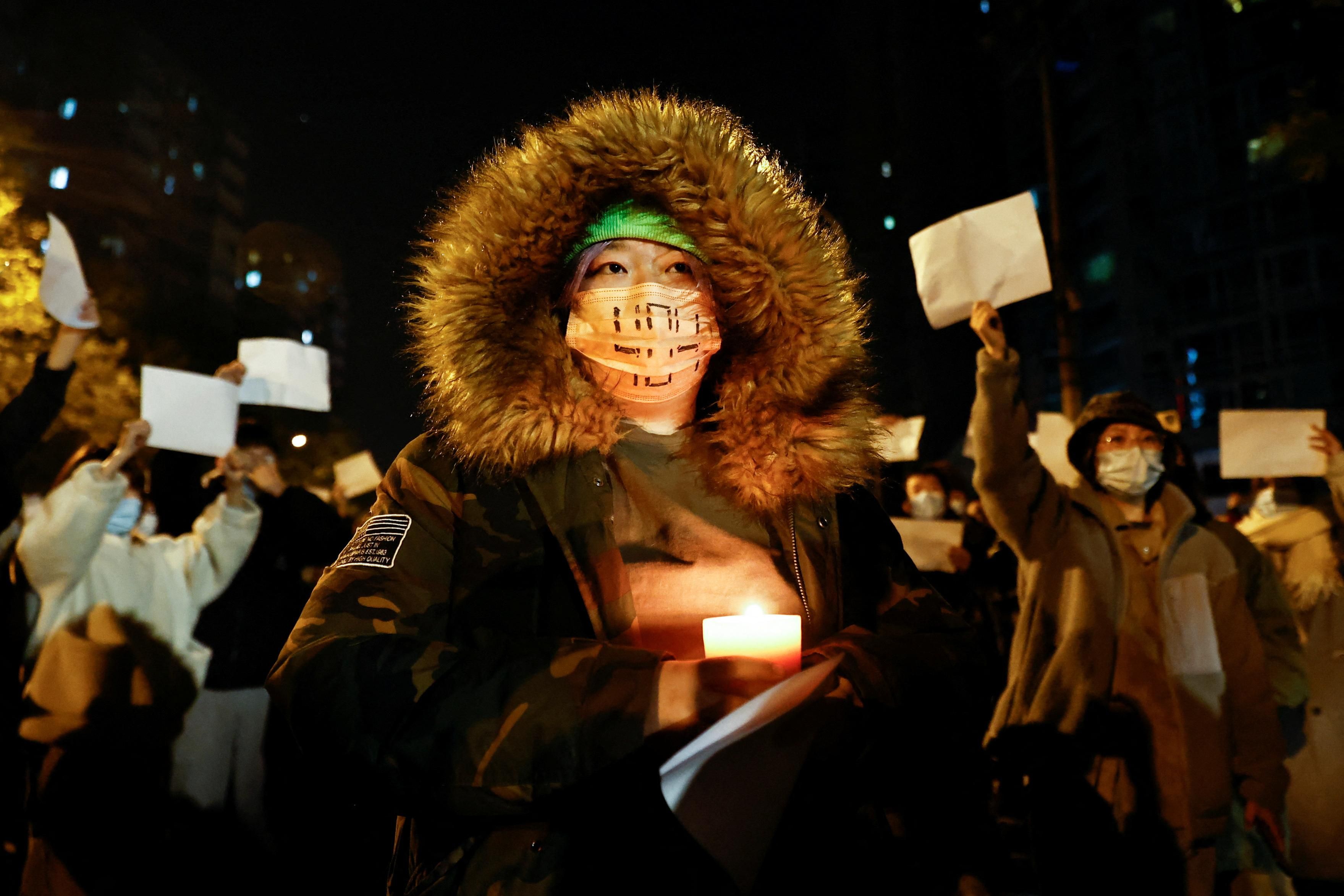What We're Watching: China losing on zero-COVID, "winning" in Taiwan
Chinese people vs. zero-COVID
Unprecedented protests against Xi Jinping and his controversial zero-COVID policy have hit the streets and college campuses across China. On Saturday, demonstrators in the financial hub of Shanghai, the country’s largest city, waved blank sheets of paper to show defiance and demanded the unthinkable: that the all-powerful Xi step down. Similar scenes were seen from Beijing to Nanjing.
Such widespread protests are extremely rare in tightly controlled China, especially against Xi. But zero-COVID, despite recent tweaks, has not only affected everyday life and the economy — it may also have been the cause of a recent fire that killed 10 people in Urumqi, the capital of the northwestern Xinjiang region. While the tragedy may have sparked the latest round of protests, for months snap lockdowns have been triggering clashes between residents and officials in other cities. China’s low vaccination rate, ineffective homegrown vaccines, and the high elderly population support Beijing’s insistence on zero-COVID. However, the policy isn’t working anymore, with case numbers now hitting record highs. Xi just got a third term as Communist Party boss, putting him on the path to likely rule as long as he wants. Will the recent protests — which so far have been met with strong police action — force him to rethink the policy, or double down on it?
On Monday, some big cities responded to the unrest by (slightly) relaxing COVID curbs. However, Beijing and Shanghai stepped up security in protest areas and national state media clarified that zero-COVID is here to stay.
Taiwan’s ruling tough-on-China party gets clobbered
Taiwan's President Tsai Ing-wen stepped down as leader of the ruling Democratic Progress Party after it lost big to the opposition Kuomintang party, or KMT, in Saturday's local elections. As expected, the KMT, which has long favored closer ties with Beijing but denies being pro-China, swept the polls across most big cities. The DPP had tried to turn the election into a referendum on protecting Taiwan's democracy from Chinese encroachment, but it didn't work: Voters responded better to the KMT's pitch about prioritizing local issues such as COVID and the economy. Meanwhile, the upstart Taiwan People's Party — seen as a rising alternative to the DPP and KMT — turned heads by capturing Hsinchu, known as the self-ruled island's Silicon Valley because it is home to many semiconductor companies. The result ups the ante ahead of the 2024 presidential election, when voters will likely be more worried about China's growing threat. A KMT victory would be welcomed by Beijing, but success in local elections doesn't necessarily mean it'll do well in 2024. After all, in early 2020, the DPP recovered from a similar local election defeat to reelect Tsai in a landslide.
